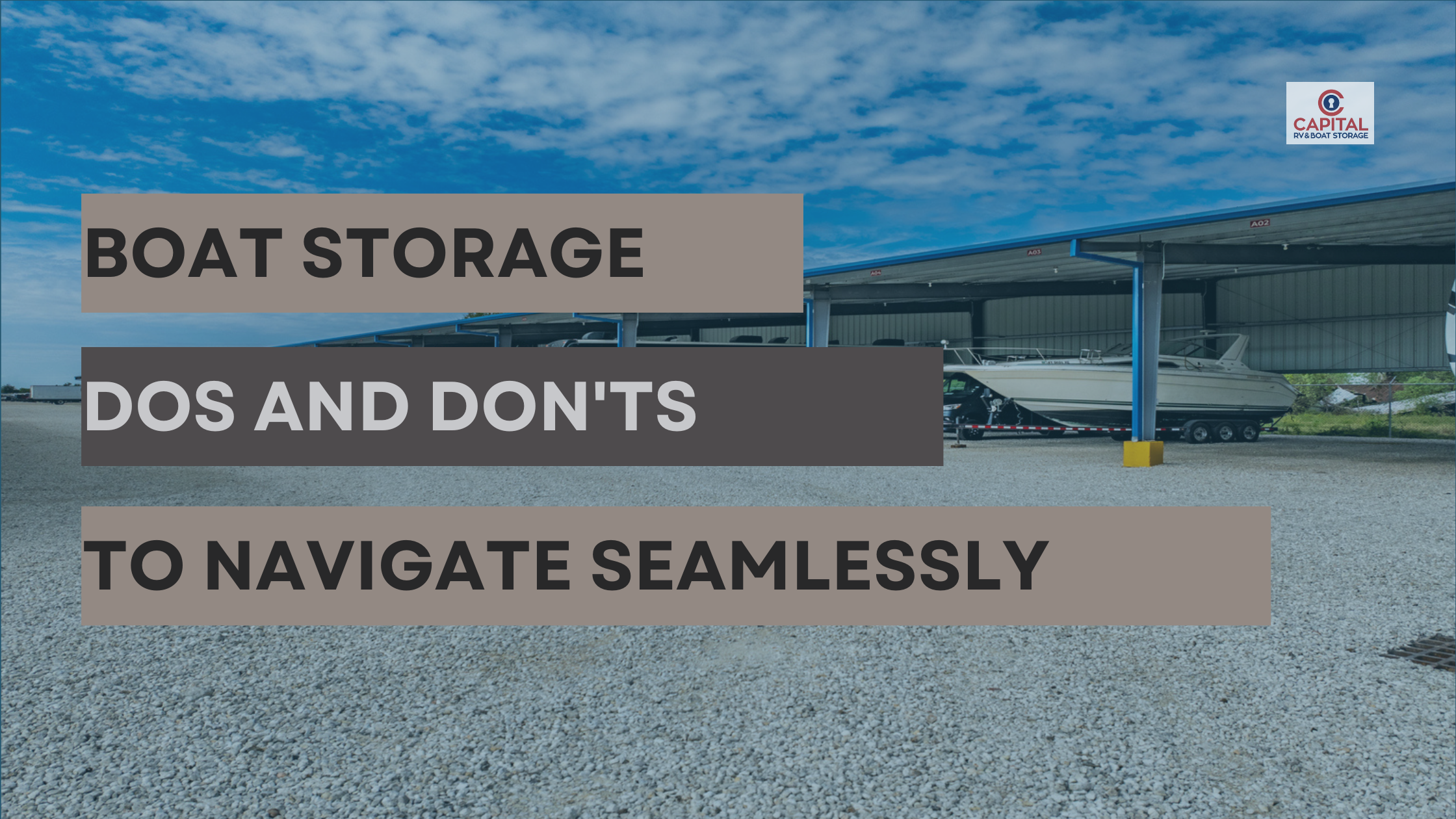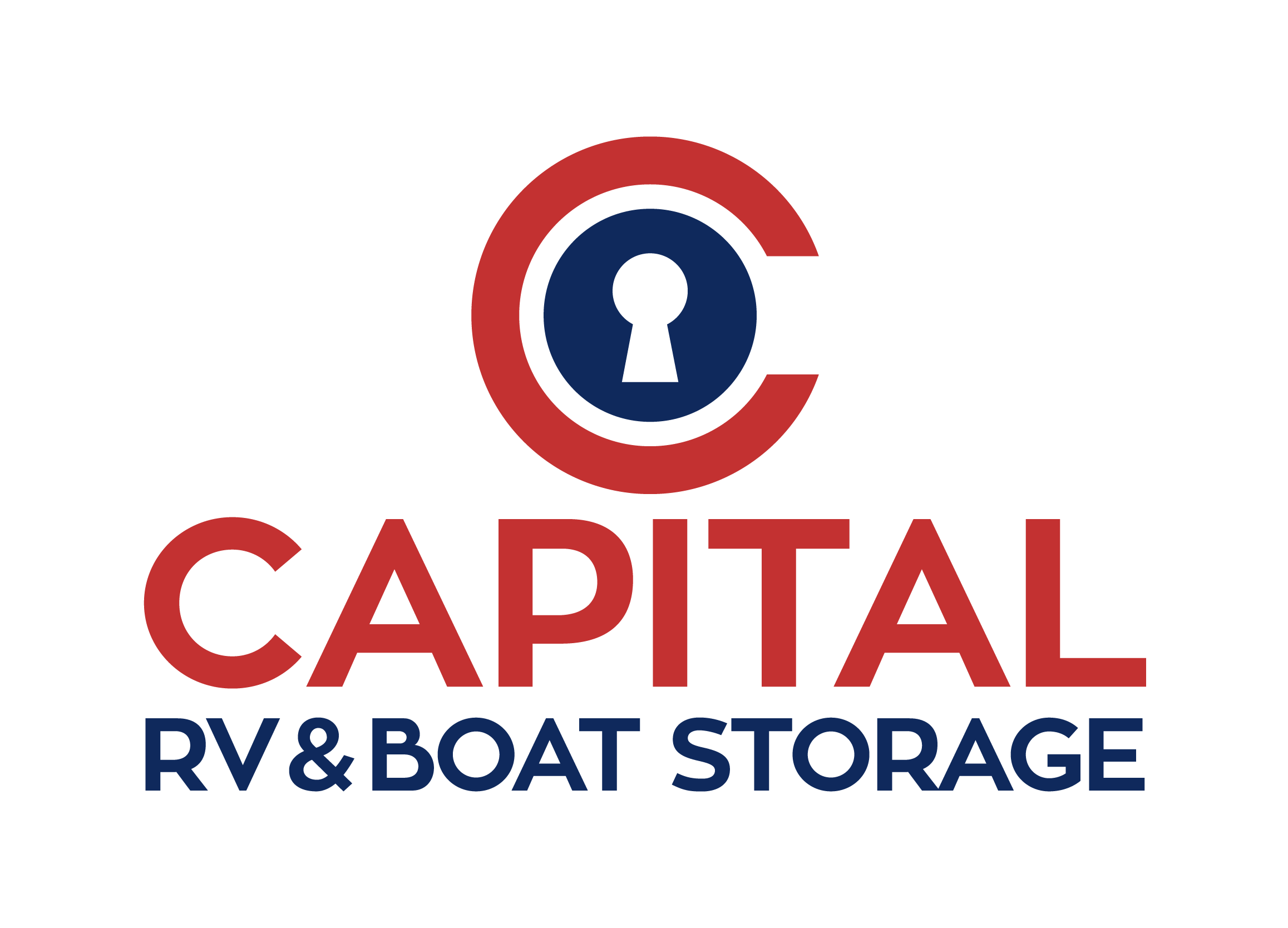Boat Storage Dos and Don'ts to Navigate Seamlessly

Boat storage seems like it should be a simple thing, doesn't it? You shelter the boat, you return to it when you're ready to take it back out—done. But many people make some common mistakes when they're storing their boats for the off-season or even just for a few weeks. So whether you're using a public marina or a private boathouse, here are the things you should watch for.
Having a boat gives you access to a world of water adventures, but you must also give your boat an adequate life ashore. When you put it up for the winter (or for an extended period), you need to ensure it will come out of storage in good condition and ready to take to the water again immediately. In this guide, we will emphasize the importance, and the kinds, of storage you should pursue.
Boat owners face many difficulties when it comes to storing their boats. But why do boats need to be stored at all? Boats, like other vehicles, are susceptible to a variety of damages, if not stored properly. The damage might occur in the paint or other external features, might result from the use of poor-quality fuels or lubricants, and might end up in the engine or almost any other part of the boat.
To be certain your ship stays in shipshape and Bristol fashion and is ready for the next adventure, do not save on cheap outdoor covers. If you must store your dreamboat outside ensure it's covered from stem to stern with a cover worth its salt. Be doubly certain to shield your boat's bottom; boats left outdoors should be on a cradle.
Do's
Opt for The Right Storage Facility
Go for a storage facility offering safe
vehicle storage solutions that fit the size and demands of your boat.
Make sure your boat is clean and ready to go. Give it a good scrub inside and out, then do some regular upkeep. That could include anything from looking for leaks to giving the hull a good once-over to see if it might be damaged anywhere. If you're the type who's finicky about minding the details (or if the details have a real chance of messing up your day), perform your check with a good, solid light behind you.
Do provide your watercraft with suitable protection. Ensure that your boat is outfitted with a sturdy, reliable boat cover or shrink wrap until you put it back in the water. Your boat is bombarded by sunlight, moisture, wind, dust, and the other basic elements of Mother Nature. A hardy cover or some well-applied shrink wrap will provide a decent defense until your boat is de-winterized.
Self Storage in Tomball - Reserve A Unit
Put security features in place on your boat. These deterrents can be anything from good old-fashioned locks to modern-day alarms. Install a surveillance system. Cameras work wonders in deterring would-be thieves and vandals. On much of the world's coasts and waterways, boat theft is all too common. Boats are vulnerable in ways that homes and cars are not, making them an all-too-tempting target for anyone looking to make a quick buck.
Keep up With Routine Checks
Long-term outdoor boat storage, or even storage for over the winter, requires routine checks to maintain the integrity of your vessel. Consistent checks mean that you'll note any damage, cracks, or wear and tear.
Don'ts
Don't Skip the Upkeep
Evade the shirking of ordinary support assignments. They are there to keep "small" problems from growing into problems that can grind to an expensive halt to a boat's forward progress. They are also there to ensure that, over the long term, the boat's components complicate one another's lives as little as possible.
Don't underrate the importance of safety measures, such as robust locks, an alarm system, or surveillance, to shelter your boat from robbed dreams and rightful access. Do not leave your boat in the open.
Don't Forget Your Valuables
Before putting your boat into storage, make sure all your valuable gear and personal belongings have been removed. Marine electronics and fishing equipment that is left on board are prime targets for theft, as is any other gear of value.
Vehicle Storage Safety
Don't Ignore Damages
If your boat incurs any form of damage, it's best to fix the problem as soon as it happens or is discovered. Not only does that keep the boat safer for you, your friends, and your family, but it also ensures that cosmetic issues don't become more serious structural ones. Putting off a fix might save you money in the short run, but you can bet you'll pay a steeper price down the line.
The team at Capital RV & Boat Storage recognizes the significance of ensuring secure storage for one's watercraft. Our facility promises an atmosphere of safety and security that will leave both the RVer and the boater at ease during the storage period. And yet, a safe storage experience is about more than just a reduced risk of theft. It’s also about keeping storage-related damage itself at bay.
Safekeeping Storage
At the storage sites we use, we don't leave safety and security to chance when it comes to your boat. The sites are state-of-the-art and have all the necessary components to be called such. These are real, honest, completely secure facilities. They're what we'd want if we needed to store our own boats.
To sum up, knowing the ins and outs of proper boat storage is crucial if you want to shield the dollars you've put into your boat and to extend the serviceable life on the water. The guidelines above and a few sacrifices of time and, yes, some money for a good
vehicle storage facility will yield a well-kept boat come spring.


